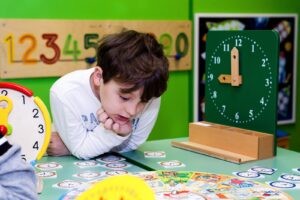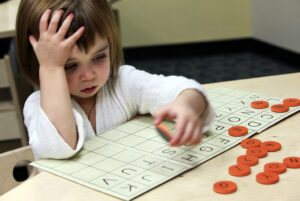Mathematics including subtraction by 5 is a science that really has a very important practical meaning in everyone’s life. We encounter it every day, going to the store or figuring out if the mirror will fit in the niche in the wall. We try to explain its necessity to our children, but these conversations rarely change their attitude toward the subject.
Then we say that our child is a humanitarian and does not understand mathematics. But this is the wrong approach. As a rule, dislike of the exact sciences appears in preschool age, when the baby is just beginning to touch the world of numbers and shapes. Here are 5 tips for parents of preschoolers who want to lay the foundation for successful learning before school.
1. Start with a simple including subtraction by 10
This is a very important rule of pedagogy. To learn something, you always need to start small, not rush straight to the solution of complex problems. Even at a very early age, start learning math by recognizing geometric shapes, finding logical connections, counting the objects around you and comparing their numbers, without being tied to specific numbers. Learn to compare objects by characteristics: high-low, large-small, wide-small, and so on. Move on to numbers and operations with them only when a child has mastered all these mathematical concepts.
2. Use emotions about subtraction facts
A small child needs positive emotions, so he enjoys doing something. You can make him do it from under the stick, but will it work? Classes in math in preschool should be based on a game activity, which is leading children under 7 years, so personal interest and interest can not be discounted.
3. Bring math into real life
Math is primarily an applied science, so it’s important to show your child with real-life examples of how it works in the world of not only adults, but children as well. For example, you go together to the store, and still at home you set a condition that the child can choose sweets or toys for a certain amount. You can not go beyond that limit, because then you will not have enough money. In this way you will not only draw your child’s attention to the fact that being able to count is very important, but you will also avoid unpleasant scenes at the cash desk. Tell your children how you use math in daily activities, give specific examples on events that happen in the family.
beyond that limit, because then you will not have enough money. In this way you will not only draw your child’s attention to the fact that being able to count is very important, but you will also avoid unpleasant scenes at the cash desk. Tell your children how you use math in daily activities, give specific examples on events that happen in the family.
4. Create situations of success
Anyone, and especially a child, needs to see the results of their activities. If he or she constantly experiences failure, his or her attitude will very quickly become negative. For this purpose it is always necessary to organize the learning process according to the principle “from the easiest to the hardest”.
5. Don’t limit yourself to numbers
Math is not only about addition, subtraction and problem solving. A large layer is taken up by manipulation (real or mental) of geometric shapes, as well as logic. Without these components, you can’t succeed in science, so it’s important to remember to work in this direction.